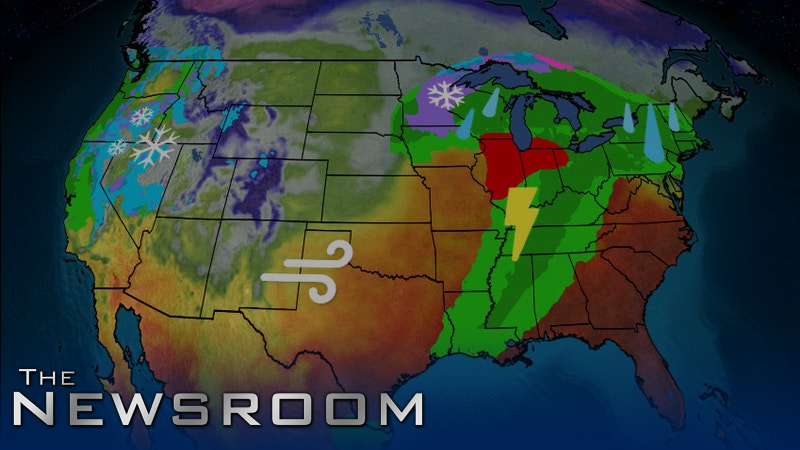A meteorologist has admitted that he and his colleagues are fabricating weather reports.
How many times have you planned a day out or a barbecue, only to have it rained out? In your frustration, you raise your fist to the heavens and curse the weather gods. What happened to the clear skies that the weather report promised? Was the weatherman wrong?
According to a recent admission by one meteorologist, the truth is more sinister.
“Honestly?”, says a Chicago-based meteorologist, “We just make it up as we go along.”
The Chicago-based meteorologist, who agreed to speak to AJnet on the condition that his identity remain anonymous, said that, more often than not, he and his colleagues would fabricate weather reports for the station.
“We have no idea what the heck we’re doing. The station pays us to give viewers a weather report, so that’s what we do. It doesn’t have to be correct, it just has to be weather.”
The meteorologist further explained that sometimes large companies could even pay to influence weather reports.
“I’ve never done it myself, but I know several colleagues who have taken financial contributions from large retailers, particularly in the grocery industry, to forecast a large snow storm. Customers see our report and flock to the stores to stock up on food and rock salt, which boosts profits for the retailers.”
Unfortunately, people probably shouldn’t expect this illicit behavior to change anytime soon. The Chicago-based meteorologist explained that meteorology is “essentially a giant scam” and “everyone is in on it”.
“When you go to school for meteorology, one of the first things you’re taught is that it’s all a load of BS,” the meteorologist told AJnet, “We can’t actually predict the weather any more accurately than we can the winning lottery numbers. Those expensive radars and computers monitor what’s currently going on, but they can’t see into the future, they’re not psychic. It’s all essentially a giant scam, and everyone is in on it.”
But what about all those times the forecast is spot-on? If they’re just making it all up, then wouldn’t weather reports be wrong more often than they are? Not necessarily, explains the meteorologist. It’s actually easier to get lucky than you might think.
“We don’t usually make insanely wild forecasts,” the meteorologist said, “We’re not going to call for a blizzard in the middle of summer or anything like that. When we come up with our forecasts, we follow the KISS method, which means, ‘Keep It Simple, Stupid’. By keeping our predictions realistic and simple, we’re bound to get at least some of them correct.”
The meteorologist went into further detail about his forecasting methods.
“If it’s summer, it’s going to be hot, so we tell people to expect high temperatures for the day. We pick the exact temperature we show the viewer at complete random, there’s no real science behind it. Likewise, in the winter it’s cold. I think you get the idea.”
When asked how rain is predicted, the meteorologist laughed.
“What’s it doing in the next town over?”
He explained that he and his colleagues would use the current weather of neighboring towns to build the forecast for the next day.
“If it’s raining up in Milwaukee today, there’s a chance it’s going to rain here tomorrow. So rain in Milwaukee one day means a forecast for rain in Chicago the next day. Sometimes we get it right, sometimes we don’t.”
When asked if he felt it was immoral or unethical to deceive the public with false weather reports, the meteorologist shrugged indifferently.
“Maybe, but it doesn’t bother me any. Sure, someone’s plans might get ruined, but that’s not our problem. We’ll dry our tears with the paychecks and keep on reporting the weather like we’ve been doing. You’ll keep watching it and the station will keep making money. The stations know we do this, they don’t care either. It’s not something any of us think about too often.”
The meteorologist had one last remark for viewers.
“Don’t forget your umbrella! It’s going to be a wet one out there! Or not, I don’t know.”

